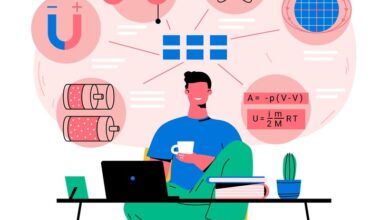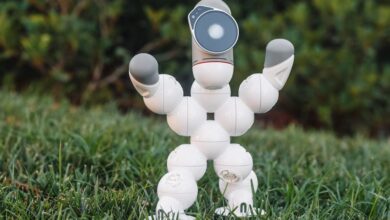What Is The Role Of AI In Human Education?

Explore the transformative role of AI in human education. Dive into the destiny of gaining knowledge of cutting-edge technologies, personalised mastering stories, and adaptive answers. Uncovering the approaches synthetic intelligence is revolutionizing schooling, empowering each student and educators. Stay in advance inside the academic evolution with insights, trends, and the infinite opportunities AI brings to the study room.
While artificial intelligence technologies provide new educational opportunities, we must move quickly to guarantee that they are incorporated into learning systems according to our needs. The main takeaway from UNESCO’s recent study on generative AI and the future of education is that. Stefania Giannini, the Assistant Director-General for Education at UNESCO, raises concerns in her think piece on how generative AI is being used without the same safeguards that are in place for instructional materials. She emphasizes that artificial intelligence (AI) tools open up new learning opportunities, but that rules cannot be developed until the necessary research has been completed.
We can fit thousands of books into a few megabytes of memory because of modern technologies. The Internet also offers access to a vast amount of information. However, having more access to vast amounts of knowledge is only beneficial if we study the pertinent books. We must thus emphasize the importance of helping our kids acquire good reading habits.
Along with understanding what they read from books and other resources, students also need to think critically about what they have read. Only then can learning truly occur. The degree to which students excel academically and continue to study throughout their lives is a testament to the kind of education they received. When students are driven to get the necessary information and skills and are adept at using these resources to solve real-world problems, education is of high quality.
Affordable education results and better opportunities
Better chances and increased social and economic mobility for the individual student and their family are the outcome of having access to an inexpensive education. Creating effective educational systems can help students achieve their goals by enhancing their capacity to learn.
An academically solid and well-trained teaching staff is the cornerstone of every good school system. The integration of AI-based technologies in education can result in teaching and learning processes that are focused on the needs of the student, even if they still require ongoing training to adapt to evolving pedagogical methods.
Ways Of Assistance
AI tools can help students become better learners in three different ways.
AI-guided Education:
Just as a teacher provides past knowledge to the classroom, an AI-driven computer may also be programmed with planned expertise. At that point, the AI-machine may instruct the pupil in the same way as a teacher does in a classroom.
If a student has completed the necessary learning outcomes, a real instructor may assign specific learning tasks and assess the learner. In AI-directed learning, the AI-driven machine will make sure that the student is led on a planned learning path to achieving the intended learning goals, much like a teacher does in the classroom.
When a student is studying alone after class, this kind of device can serve as a tutor. This type of instruction is known as AI-directed learning, in which the learner adheres to a preset learning path and is only ever a recipient of knowledge. In the event that AI-directed learning gains traction, home tutoring may become unnecessary. The entire potential of AI cannot be realized by just copying the methods of a teacher using AI technology. There are more effective approaches to apply AI to enhance learning.
AI-assisted Education:
AI-supported learning is a refined kind of machine-assisted education in which the learner works alongside the AI machine. When a student engages in AI-supported learning, the computer is always gathering data from them.
The AI system can estimate the student’s development, thus this data is then utilized as incremental feedback to modify the learning process. The AI engine adaptively advises the learner to enhance the learning process through this back-and-forth procedure. In this case, the learner is the centre of attention. The AI system adjusts the difficulty level based on the student’s performance, giving them the ideal customized learning experience. Students and AI systems are working together.
AI-Powered Education:
The fact that both students and instructors are involved in AI-powered education is an intriguing feature. Many students work together to tackle challenging puzzles. By offering helpful criticism and guidance, the teachers enhance the teaching-learning environment. Since it’s a team endeavour, students need to be innovative and develop excellent communication skills.
AI will surely remain a vital part of education as new applications for tailored and individualized learning are being created at a rapid pace. The use of AI in education has both immediate and long-term advantages.But in our role as educators, we also have to ask ourselves: does education serve to strengthen human agency—that is, the ability to think, reason, and act in a conscious manner—or not?
The pupils can only effectively navigate their lives with this capacity. As we begin the process of using AI in education, it is important to consider the ethical implications of this technology.
Education is far more than just gathering information, giving forth facts, or giving quick, to-the-point responses. Thus, rather than serving as professors, AI devices are more effective as tutors or teaching assistants.
Conclusion to The Role Of AI In Human Education
Students and educators may be concerned about how AI robots gather and secure the data that is acquired from them as they progress through their educational journeys. We’ve already seen how ethical data usage and privacy concerns are becoming more and more important in fields other than education.
AI professionals essentially design the models and data that AI computers need to operate. The way AI robots engage with their users in education and, ultimately, the learning experiences they have can be determined by their prejudices and worldview. The future of kids’ education and their own lives might be shaped by AI computers, leaving the actual instructor as a silent observer. To identify possibilities and difficulties and minimize them, institutional and governmental levels must develop new strategies and appropriate policies.




One Comment